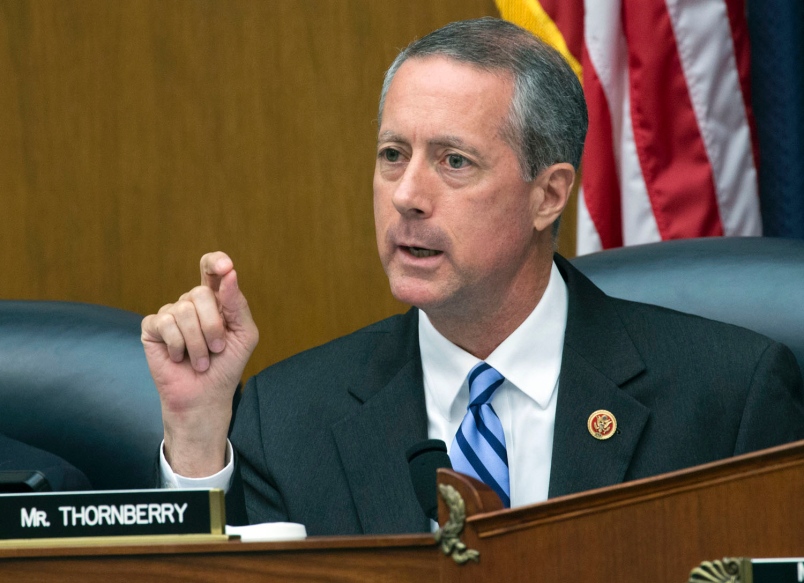Show Me The Money: HASC Chairman Thornberry On NDAA
Posted on

Rep. Mac Thornberry
CAPITOL HILL: Congress will pass the annual defense bill, and that bill must increase defense spending, the chairman of the House Armed Services Committee said this morning. While Rep. Mac Thornberry was characteristically cautious about details, he made those goals clear enough to the audience at the conservative Heritage Foundation.
“The bottom line is we’re going to have do better than spend 15 percent of the federal budget on defense,” said Thornberry. (The congressman is counting all federal spending, which is dominated by entitlements and debt payments: Discretionary spending by itself — the part Congress votes on every year — is about 50:50 defense:domestic). “We’re going to have to do better at getting more value for every dollar we spend, and we’re not going to let up on that,” he said, “but we also are not going to be able to defend the country at the level of spending where we’ve been.”
The military has serious readiness shortfalls, Thornberry said, but you can’t deal with readiness in isolation by just adding dollars to maintenance, fuel, and training. Fraying readiness is also the result of too few people doing too much work, especially maintainers, and of aging equipment overdue for replacement by new gear less likely to break down. The only real fix is to raise defense spending overall, he argued.
The House version of the National Defense Authorization Act funds the Pentagon’s base budget (as opposed to the separate war fund) at $18 billion above the Senate’s draft. Thornberry got the money, however, by raiding the war fund for Afghanistan, Iraq, Syria, and so on, counting on Congress to make up the resulting shortfall next year — a gambit the White House has threatened to veto. Thornberry’s Senate counterpart, John McCain, tried to add $18 billion to his bill — from other sources — but lost the vote. Now the two committees need to settle on a number, which Thornberry acknowledged won’t happen soon.
“My view is we should — and I think we will — try to conference as many items as we can over the next several weeks, understanding that when we come back in September we’re gong to have to deal with this topline issue,” said Thornberry. By then, he noted, there should be more clarity on appropriations bills and other fiscal matters “as we approach the end of the fiscal year” on September 30th.
“The job for us is to try to do our best to come to agreement on the NDAA before the end of September,” he said, “and if for some reason or other that does not work, be ready for whatever lame duck (session) is going to happen after the election. It’s happened before that way.”
Last year, Congress also tried fiscally inventive ways to plus up defense, which the White House vetoed. Only after a wider budget deal raised defense and domestic spending in tandem did the Obama administration relent.
Thornberry sees last year as a “blip,” not a precedent. He particular decries the idea that the defense increases he seeks must be matched dollar for dollar on domestic programs. “It’s not a rule,” he said. “It’s a political argument used by some people to try to get more money for their programs.”
“One of the most disappointing things I’ve seen in the whole time I’ve been in or around Washington was last year, when the president vetoed the defense bill not because of what was in it. but to use it as leverage for more spending on domestic (programs),” Thornberry said. (The administration would say the veto was driven by funding gimmicks in the bill). “So essentially he hold our military hostage to get more money for EPA or whatever….I think that is unprecedented and morally indefensible.”
The battle will be rejoined this year — and next year, and the year after that.
“The country faces growing threats, diminishing resources, a mounting readiness crisis, and a sclerotic system that cannot keep up,” Thornberry said. “We’re not going to fix all that in one defense authorization bill.”
Subscribe to our newsletter
Promotions, new products and sales. Directly to your inbox.
